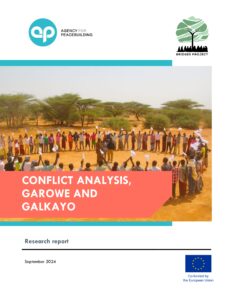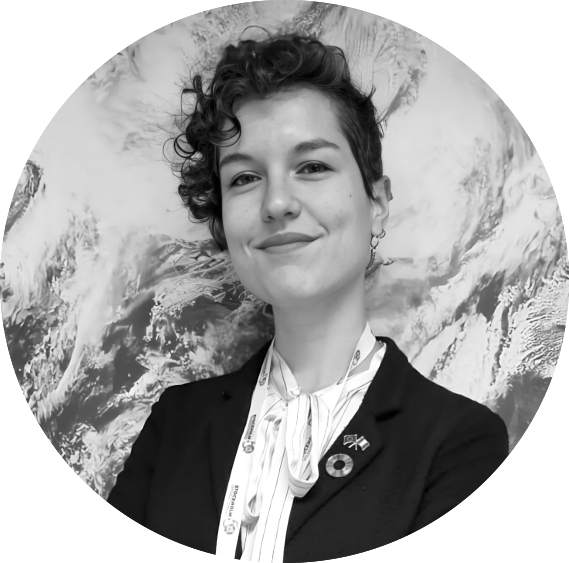Conflict Analysis, Garowe and Galkayo
This report presents a comprehensive conflict analysis aimed at supporting the “Building Reconciliation and Peace through Inclusive Dialogue, Gender Equality, Sport and Protection of Cultural Heritage” (BRIDGES) project, co-funded by the European Union and implemented by the Agency for Peacebuilding (AP) in collaboration with CEFA Onlus and the Galkayo Education Center for Peace and Development (GECPD).
The BRIDGES initiative focuses on addressing the complex conflict dynamics in Garowe and Galkayo, two key urban centers in Somalia’s Puntland and Galmudug states.
Purpose and Methodology
The core objective of this analysis has been two-fold:
- Empower Somali youth to identify and articulate their priorities for community rebuilding and actively participate in shaping solutions
- Create a shared knowledge base by enabling project implementers with specific insights to design tailored interventions that reflect the actual needs of local communities
Key findings
The conflict analysis outlines strategic recommendations for implementing peacebuilding activities under the BRIDGES project, emphasizing the importance of interventions tailored to the specific socio-political dynamics of Garowe and Galkayo. Key recommendations include:
- Provide more focus on high-consensus conflict issues, as they represent entry points for conversations, which could increase social cohesion
- Engage youth and elders proactively and build spaces for effective women empowerment
- Leverage synergies with other NGOs (Somali and international alike)
Participatory Action Research (PAR)
The study was conducted using the Participatory Action Research (PAR) approach, which values experiential knowledge and prioritizes the voices of those individuals and communities most affected by the problems that the research seeks to analyze.
The research was thus co-designed with six Somali researchers from Garowe and Galkayo, who led data collection activities, including in-depth interviews with local authorities and government representatives, youth and women leaders; focus group discussions with women civil society representatives, students, parents and elders; and an extensive review of existing literature.
This participatory methodology creates a space for meaningful dialogue and knowledge exchange, which provides nuanced insights that inform practical, context-specific solutions, reflective of the local’s needs and priorities.
































